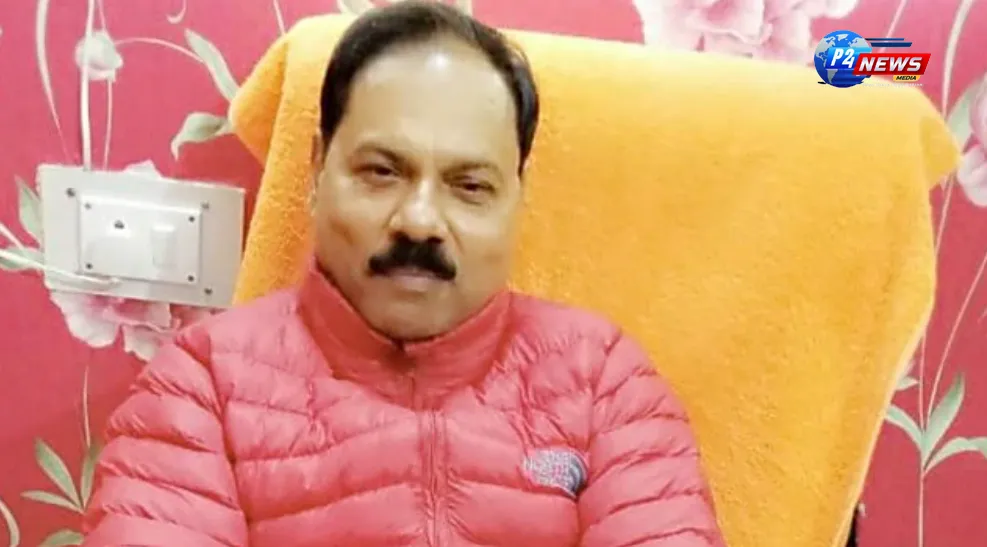Chief Justice Sanjiv Khanna of India has requested a new report from Allahabad High Court Chief Justice Arun Bhansali on a specific matter, indicating the importance of the issue at hand.
Chief Justice Sanjiv Khanna of India has requested a new report from Allahabad High Court Chief Justice Arun Bhansali on a specific matter, indicating the importance of the issue at hand.
Three weeks after the Supreme Court Collegium summoned Allahabad High Court’s Justice Shekhar Yadav regarding his controversial comments aimed at the Muslim community during a Vishwa Hindu Parishad event, the Chief Justice of India has taken further action. Reports indicate that Chief Justice Sanjiv Khanna has reached out to Allahabad High Court Chief Justice Arun Bhansali, requesting a new report on the situation.
On December 17, the Collegium, led by CJI Khanna, held a meeting with Justice Yadav to discuss the remarks. However, since that discussion, Justice Yadav has remained unyielding, offering neither an apology nor a clarification regarding his statements. A few days post-meeting, the Chief Justice had updated the full court regarding the matter, indicating its significance within the judicial system.
This recent development is perceived as an initial move toward potentially initiating an internal inquiry into the alleged misconduct by Justice Yadav. According to a resolution established in a 1995 Supreme Court judgment, titled C Ravichandran Iyer versus Justice A M Bhattacharjee and Others, when allegations arise concerning a High Court judge, the Chief Justice of that High Court must conduct an investigative inquiry. If necessary, this involves consultation with the Chief Justice of India.
This precedent originated from allegations of financial misconduct against the then Bombay High Court Chief Justice A M Bhattacharjee. The Supreme Court's ruling emphasized the necessity for discernment between unacceptable behavior and actions warranting impeachment. Following the emergence of the allegations, Justice Bhattacharjee resigned, prompting the Supreme Court to further clarify the protocol surrounding judicial misconduct.
The Supreme Court asserted, “We believe that when a complaint is made regarding a High Court Judge, the Chief Justice of the respective High Court must ensure verification and, if required, conduct a confidential inquiry through independent sources. This inquiry must reaffirm the truth behind the allegations posed by the Bar Association against the Judge, leading to a consultation with the Chief Justice of India, as deemed necessary. To prevent any embarrassment and to ensure fairness in the proceedings, the Bar Association should pause any ongoing actions, allowing the Chief Justice of India to address the issue appropriately.”
Moreover, the Supreme Court ruled that once the Chief Justice of India receives the information from the Chief Justice of the High Court, and if satisfied regarding the conduct in question, he may offer advice or commence actions deemed suitable based on the circumstances. If feasible, engaging the Judge in confidence prior to any action is considered beneficial. The decision made by the Chief Justice of India should conclude the matter.
Following the aforementioned ruling, in 1997, the Supreme Court established an in-house inquiry mechanism to address any judicial violations of the 'Restatement of Values of Judicial Life', a code of conduct embraced by the apex court. This mechanism aims not only to uphold the integrity of the judiciary but also to maintain public confidence in its functionality and impartiality.
The ongoing scrutiny of Justice Yadav’s comments and the subsequent actions taken by the judiciary underscore the importance of accountability and ethical standards within the judicial framework of India. The developments are part of broader efforts to ensure that judges adhere to the principles of justice and equality, upheld by the Constitution and the justice system itself.
Like
Dislike
Love
Angry
Sad
Funny
Pray
'Trump Tracker: Tulsi Gabbard's Surprising Appointment as US Intelligence Chief
November 14, 20249th Ayurveda Day in Melbourne: A Celebration of Ayurvedic Innovations and Global Health Impact
November 10, 2024🍪 We Value Your Privacy and Experience Hi there! We use cookies to enhance your browsing experience, provide personalized content, and analyze site traffic. By continuing to use our site, you consent to our use of cookies.







Comments 0